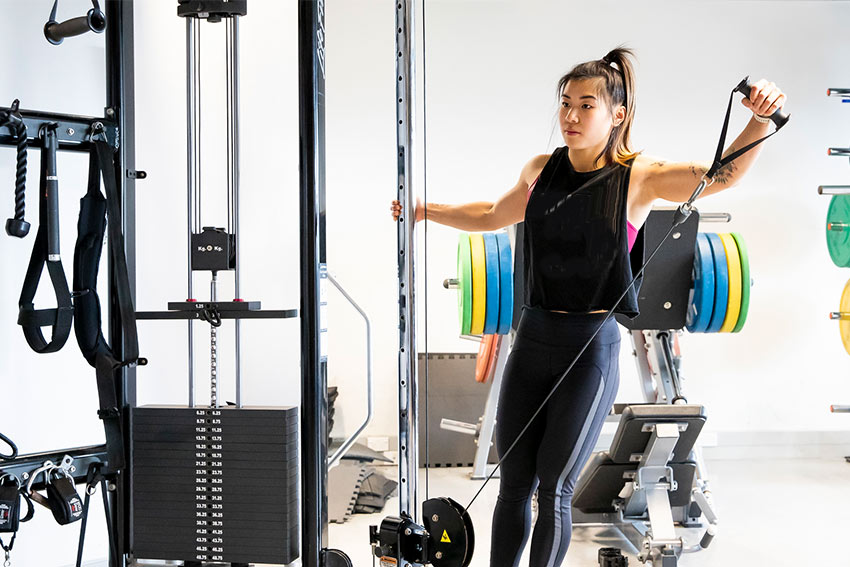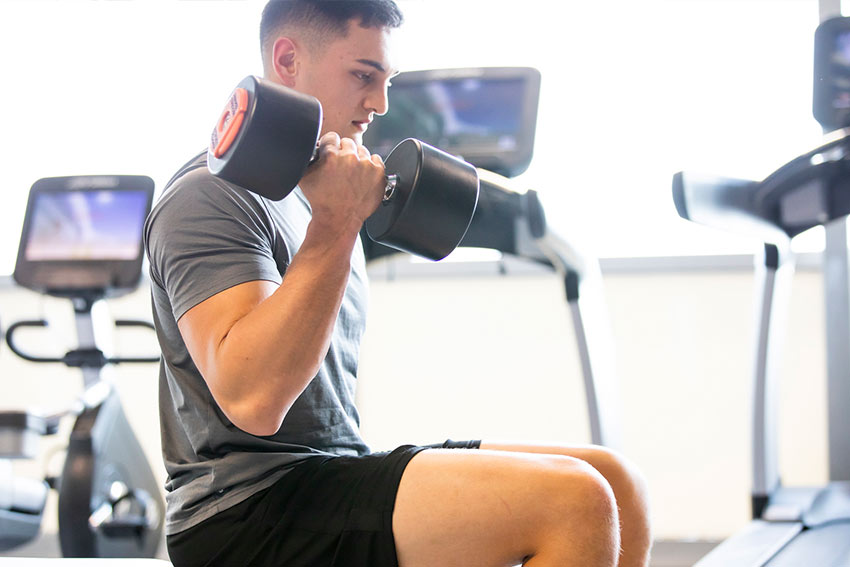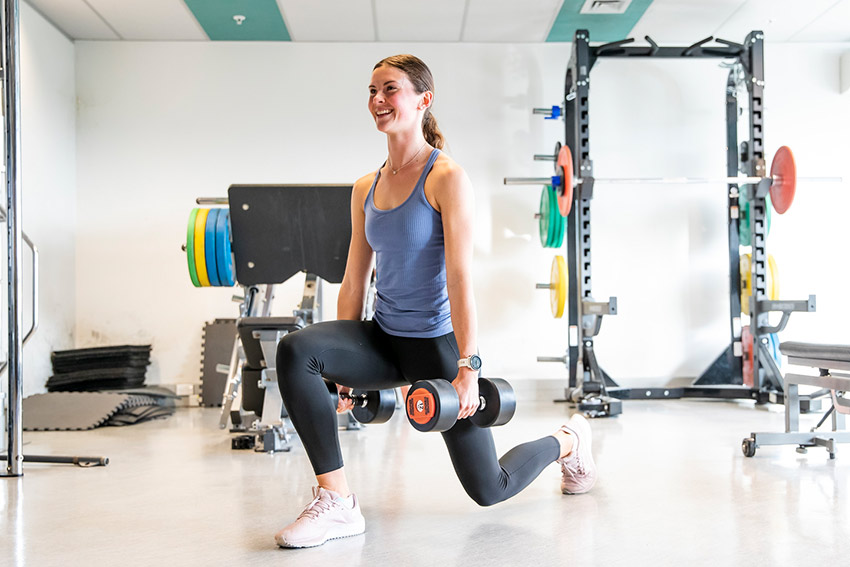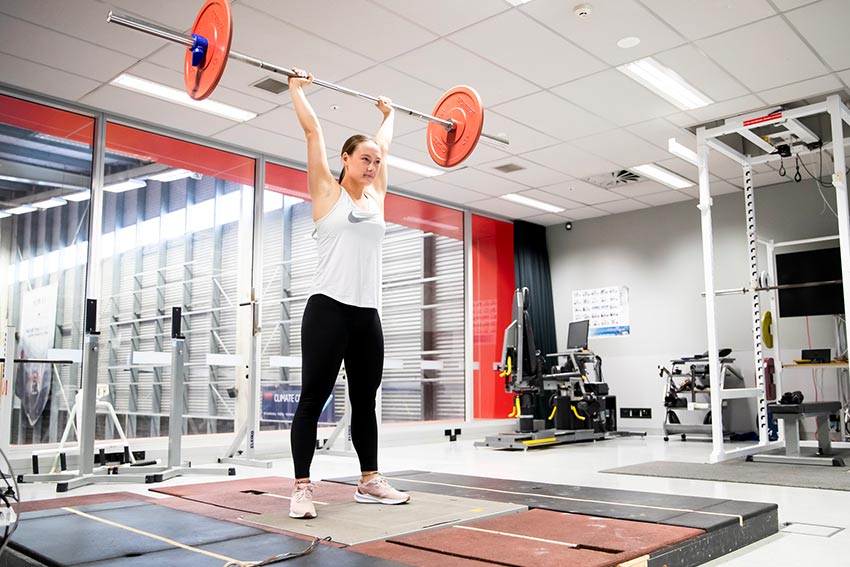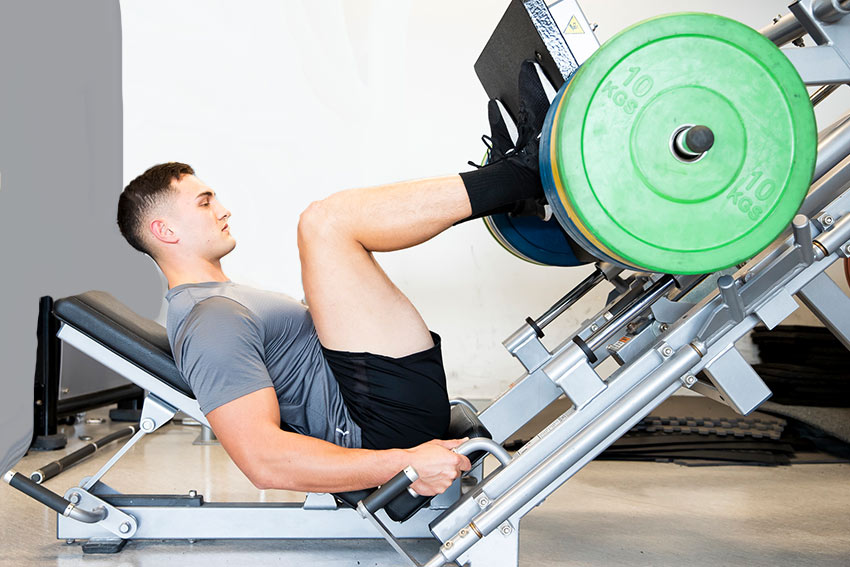SPRINZ/SESNZ Strength and Conditioning Conference 2024
The Strength and Conditioning Conference will be held on the 14 and 15 November 2024 at AUT Millennium.
The pre-conference - Movement Masterclass: How to Increase Performance and Reduce Injury in Youth Athletes will be held on the 13 November 2024 at the AUT North Campus.
A conference that provides actionable steps for improved Strength and Conditioning practice.
Ask. Answer. Share.
Details about the conference
Movement Masterclass: How to Increase Performance and Reduce Injury in Youth Athletes
8.15am
Registration, introduction and housekeeping (Room AF116)
8.30am
“A Conversation with Aaron Webb”
In this podcast style conversation, Dr Craig Harrison will host an open conversation with the Player Development and Talent Identification Manager at Crusaders Rugby, Aaron Webb. The session will include the chance to ask Aaron questions, so make sure you come prepared.
10am
“Growing bodies with Dr Anja Zoellner”
Unlike adults, kids go through a period of accelerated growth that has a significant impact of the way they move and experience sport. In this session, Anja shares the latest science on the adolescent growth spurt, how to measure it, and why it’s so important to understand for preventing injury.
10.30am
“Stronger with Dr Ben Pullen”
In this keynote presentation, Dr Ben Pullen will share his research-backed approach to training strength in young athletes. With a PhD to his name, over 10 years practical experience and more than 300k Instagram followers, Ben is one of the leading names in paediatric strength and conditioning.
11.15am
“Faster with Dr Aaron Uthoff”
Aaron is a Senior Lecturer at the Sports Research Institute of New Zealand and Auckland University of Technology, where he lectures on principles and applications of strength and conditioning. In this session, Aaron will share the latest science on developing speed in young athletes.
12 - 1pm
Lunch break (BYO)
1 - 3.30pm
“The Movement Masterclass” - AUT Sports Stadium (AH Building)
In this 100% practical workshop, Ben, Anja and Aaron will bring the science they shared in the morning sessions to life. Bring your active wear because this one is going to get sweaty.
4pm
Social mix and mingle
Pre-Conference presenter profiles
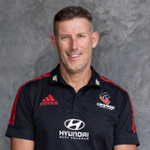
Aaron Webb
To learn more about Aaron and hear him talk on the artistry of people development, visit the athlete development project.
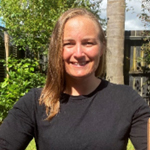
Dr Anja Zoellner
Dr Anja Zoellner has a PhD from Auckland University of Technology and a Master of Science from the Swedish School of Sport and Health Sciences in Stockholm. Anja’s research interests range from youth development, sport biomechanics, injury prevention, to concussion prevention and management.
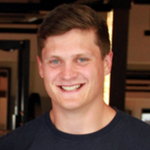
Dr Ben Pullen
Dr Ben Pullen is the founder of the youngathletetraining.com, an online training platform for young athletes around the globe. In his PhD thesis, Ben examined the effects of resistance training on athletic motor skill competencies and psychological constructs in secondary school children.
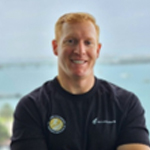
Aaron Uthoff
Dr Aaron Uthoff has a PhD in Strength & Conditioning from Auckland University of Technology and a Master of Science in Performance Psychology from the University of Edenborough. Currently, Aaron lecturer in sport science with research interests in sprint biomechanics and wearable resistance.
The day has been organised with keynote speakers and workshops. There is an incredible variety of topics with the day finishing with a chance to mix and mingle.
Each day there are 8 workshops on offer in which you can attend 2.
Opening and keynote speakers
9.15 - 9.40am
Registration: The Finish Line Room, level 1
9.40 - 9.45am
Introduction and housekeeping (John Cronin)
9.45 - 10.30am
Fitness Trainer - S&C Coach - Performance Director: Semantics or career progression? (Johnny Claxton, Facilitator: John Cronin)
10.35 - 11.20am
Surfing the complexity: maintaining relevance over a career (Jamie Stanley, Facilitator: Andrew Kilding)
11.25am - 12.10pm
Plyometrics: Working back from the sport, profiling athletes and practical training interventions (Joseph Coyne, Facilitator: John Cronin)
12.10 - 1pm
Lunch
Workshops
Workshop Options: Please select 1 of the 4 workshops in each time slot (places are limited).
1 - 2pm
- Matt Blair: Men without masks - Waitematā Room (Aktive), level 2
- Anthony Bedford & Hayden Croft: CAPPING Analysis: The Coach-Analyst-Player Interface - Seminar Room SA213, level 2
- Eske Dost: Coaching strength and weightlifting: screening, observing and cueing - Power Zone, ground floor
- Damian Harper: Developing deceleration ability in our athletes: Use of a braking performance framework - Indoor Track, ground floor
2.10 - 3.10pm
- Sharon Kearney: Building physical capacity of the female athlete: What's important? What not to miss? - Seminar Room SA213, level 2
- Jamie Stanley: Heat training - Waitematā Room (Aktive), level 2
- Joseph Coyne: Plyometrics: Working back from the sport, profiling athletes and practical training interventions - Power Zone, ground floor
- Aaron Uthoff: Utilising resistance and assistance to enhance linear speed and change of direction performance in field and court sport athletes - Indoor Track, ground floor
Keynote speakers and discussion (The Finish Line Level 1)
3.20 - 4.05pm
Physical Preparation for the America’s Cup (Kim Simperingham, Facilitator John Cronin)
4.10 - 4.55pm
Enhancing the human factors in sport (John Sullivan, Facilitator: Andrew Kilding)
5 - 5.45pm
Panel Discussion: Information innovation and guardrails in sport (John Sullivan, Matt Blair, Eske Dost, Jamie Stanley, Hayden Croft, Facilitator: Glenn Kearney)
From 5.50pm
Mix and mingle
Pricing
- Standard price: $90 per day
- Student price: $40 per day
Registration
You can register and pay through our portal (Xetta).
If you have any questions regarding the registration or the conference in general, please email Jane Hall
The day has been organised with keynote speakers and workshops with an incredible variety of topics.
Each day there are 8 workshops on offer of which you can attend 2.
Keynote speakers and discussion (The Finish Line Level 1)
8.30 - 9.15am
Deceleration: Why is it so important for athletes competing in multi-directional sports? (Damian Harper, Facilitator: Aaron Uthoff)
9.20 - 10.05am
Prioritising health to optimise performance in competitive sport. A female perspective (Sharon Kearney, Facilitator: Alyssa-Joy Spence)
10.10 - 11.10am
Analysis of analysis (Anthony Bedford and Hayden Croft, Facilitator: Kirsten Spencer)
11.15am - 12pm
Panel Discussion: Analysis of analysis & Out of the lab, onto the field (Hayden Croft, Steve Barrett, Anthony Bedford, Facilitator: Kirsten Spencer)
12 - 12.30pm
Lunch
Workshops
Workshop Options: Please select 1 of the 4 workshops in each time slot (places are limited).
12.30 - 1.30pm
- Matt Blair: Men without masks - Waitematā Room (Aktive), level 2
- Steve Barrett: Field based submaximal and conditioning insights: Applications to individual specifics - Seminar Room SA213, level 2
- Eske Dost: Coaching strength and weightlifting: screening, observing and cueing - Power Zone, ground floor
- Damian Harper: Developing deceleration ability in our athletes: Use of a braking performance framework - Indoor Track, ground floor
1.40 - 2.40pm
- Sharon Kearney: Building physical capacity of the female athlete: What's important? What not to miss? - Seminar Room SA213, level 2
- Joseph Coyne: Plyometrics: Working back from the sport, profiling athletes and practical training interventions - Power Zone, ground floor
- Aaron Uthoff: Utilising resistance and assistance to enhance linear speed and change of direction performance in field and court sport athletes - Indoor Track, ground floor
Conference closure
2.40pm
Conference Closes
Dr Joseph Coyne
Joseph Coyne, is currently the Director of High Performance and Sports Development at Lindisfarne Anglican Grammar, strength and conditioning coach for Bond University Swimming and Elite Sports Program and is on the curriculum development team at University of Southern Queensland. Joseph has over 15 years’ experience working with elite professional and Olympic athletes, across a number of different sports. Previous roles include Performance Director for UFC Performance Institute Shanghai, Physical Preparation Coach for Chinese Athletics Association’s jump and sprint section and Performance Manager for the Chinese Olympic Committee. Joseph has also published a number of research outputs on training load and international Olympic athlete performance, which was the subject of his PhD.
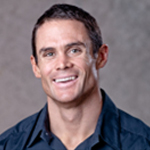
Presentation
Plyometrics: Working back from the sport, profiling athletes and practical training interventions.
Drawing on Joseph’s experience with elite track and field jumpers and sprinters, this presentation and practical will detail how coaches can work back from sporting (and positional) demands and use jumping assessments in an a la carte fashion to identify different plyometric interventions.
Dr Jamie Stanley
Jamie Stanley is a Senior Sports Physiologist at the South Australian Sports Institute (SASI) with secondments to the Australian Cycling Team (ACT) and Swimming Australia High Performance Unit (SAHPU). His role as Lead Physiologist for ACT involves leading the direction of cycling physiology across the Australian high performance sporting network and working as physiologist and coach with the National Paracycling Team. At the SAHPU Jamie is the Performance Solutions Manager for Training Insight which involves leading, planning and managing programs and projects related to acquisition and understanding of swimming performance and delivering platforms for high performance campaigns across Australia. Dr Stanley specialises in performance and recovery optimisation working with current world record holding, Olympic, Paralympic, Commonwealth, and World champion able- and para-athletes. He was the 2020 Exercise and Sport Science Australia Accredited Sport Scientist of the year. The translation, integration, and implementation of research to the applied practical setting has been fundamental to Jamie’s success in his positions within the Australian high-performance sport system. This is evidenced by the consistent and repeated delivery of world leading performances achieved by a diverse range of athletes he has worked with, mindset shifts in coaches, development of support staff through mentoring, and the ability to identify opportunities and collaborate broadly to develop “next practice” and national guidelines in key areas such as heat training and heart rate variability. Jamie is currently the co-principal investigator for the Australian Institute of Sport (AIS) Funded Little Red Riding Hood Group focused on enhancing athlete characterisation to unlock individualised training and promote interdisciplinary engagement, and a member of two other AIS Funded Research groups focused on understanding heat acclimation, and muscle typology. Jamie also holds an Adjunct Research Fellowship at the University of South Australia and is a course instructor for HIITScience.com.

Presentation
Surfing the complexity: maintaining relevance over a career
Elite sport is constantly evolving. To stay world's best athletes need to evolve and adapt training practices to keep pace with the increasing demands of competition. Like athletes, if practitioners in sport science wish to stay at the forefront and deliver next practice not just best practice, they too need to evolve. In this presentation I will examine this concept using examples from my journey as a sport scientist to date.
Johnny Claxton
Johnny is an athletic performance coach with 25 years experience working in elite sport and is currently the Head of Performance for New Zealand Sevens rugby. He recently returned to New Zealand after spending 11 years working with professional rugby teams in France, Wales, and Ireland. Prior to leaving for Europe, Johnny worked in the New Zealand rugby system (All Black 7s, Super-Rugby, and NPC) as well as roles with field hockey and cricket, and has a Master’s degree in sport science from AUT.
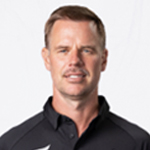
Presentation
Fitness Trainer - S&C coach - Performance Director: Semantics or career progression?
Position titles for staff working in physical performance roles within professional sports have changed over time. Do these changes reflect real progression in our operational practices or are they just another way of saying the same thing? Reflections of my 25 year journey from NZ to Europe and back again.
Dr Kim Simperingham
Head of Physical Performance for Emirates Team New Zealand
Kim has 25 years of experience in elite sport, including eight years with the All Blacks, involvement in a range of successful Olympic programs and is currently the head of physical performance for the Emirates Team New Zealand sailing team.
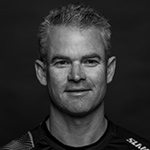
Presentation
Physical Preparation for the America’s Cup
What is involved in physically preparing athletes for America’s Cup sailing? How has “foiling” changed the physical demands of elite sailing? What is the ideal “cyclor”? This session will provide some insights into the blending of a diverse group of athletes that includes three Olympic champions; Olympic medalists from sailing, cycling and rowing; and a Coast-to-Coast multisport champion, a former professional cyclist and an SAS soldier.
Dr John Sullivan
John Sullivan is a Clinical Sport Psychologist, Sport Scientist, and the Head of Psychology for High Performance Sport New Zealand. He has over twenty-five years of clinical and scholarly experience, including working with the New England Patriots in the National Football League (NFL) for sixteen years (2000-2016), coordinating sports science and clinical care. Dr. Sullivan has also held appointments within the English Premier League (EPL), the Football Association (FA), Premier Rugby League, Australian Football League (AFL), and Olympic National teams. In addition, Dr. Sullivan has held positions as a subject matter expert and consultant for elite military units within the United States Special Operations Command structure (USSOCOM/SOCOM), United States Naval Special Warfare Command (USNSWC/WARCOM), and the Naval Special Warfare Development Group (DEVGRU). He has also provided expertise to the National Aeronautics and Space Administration (NASA), and the Defence Advanced Research Projects Agency (DARPA). Dr. Sullivan is currently a visiting scholar of Biomedical Sciences, Psychology, Neuroscience, and Exercise and Nutrition Science at the Queensland University of Technology in Brisbane, Australia. He has also served as an Instructor/Supervisor for Brown University Medical School Sports Medicine Fellowship/Residency and the University of Rhode Island Doctoral Program in Clinical Psychology and Neuroscience.

Presentation
Enhancing the human factors in sport
Interpersonal neurobiology, an interdisciplinary field merging neuroscience with psychology, explores how relationships shape the brain, emphasizing the importance of social connections and learning. In the context of sport, understanding interpersonal neurobiology can enhance coaching strategies.
Sport personnel equipped with insights into how the brain processes social interactions can better foster rapport, trust, and communication with their athletes, ultimately enhancing performance and fostering a supportive team environment. Thus, a nuanced understanding of interpersonal neurobiology is essential to thrive in the evolving landscape of sports and the information age.
Dr Damian Harper
Damian is a Lecturer in Coaching and Human Performance at the University of Central Lancashire and Founder of Human Braking Performance (HumanBrakingPerformance.com). He is an accredited sport and exercise scientist (BASES) and strength and conditioning coach (UKSCA), and world renowned for the impact that his research has had on developing and advancing applied sports performance practices. His research interests are focused on innovations and approaches to optimizing human sports performance, which he has a particular interest and expertise in understanding the performance and health implications of high-intensity movement actions performed by athletes in multi-directional sports. Damian’s PhD examined the neuromuscular determinants of horizontal deceleration in team sport athletes. He has published extensively on this topic and consulted with many professional sporting organisations from around the world, including the English Football Association, and clubs from the English Premier League, National Basketball Association and National Football League, amongst many other leading sports organisations and technology companies.

Presentation
Deceleration: Why is it so important for athletes competing in multi-directional sports?
In this presentation Damian will discuss why deceleration is such a critical quality for athletes competing in multi-directional sports. Damian will unravel the complexities of this skill, illustrate the mechanical and physiological demands, and highlight some of the technical and physical qualities that may underpin better braking and deceleration performance.
Sharon Kearney
Sharon (MNZM) has over 30 years of experience as a physiotherapist and a long and comprehensive history of service to High Performance (HP) Physiotherapy, Women in Sport and Netball culminating in being awarded the Member of New Zealand Order of Merit in 2020.
Sharon is currently the Lead Physiotherapist and NetballSmart (Injury Prevention) Consultant for Netball New Zealand (NNZ) having attended six World Cups and two Commonwealth games as the Silver Fern Physiotherapist. Sharon has developed the Female Athlete Health strategy for Netball New Zealand as well as leading and mentoring the HP and community physiotherapy programme. NetballSmart is a world leading, comprehensive and holistic injury prevention programme focusing on wellbeing, injury prevention and performance enhancement of all female Netball participants. The programme has proven to be a very successful at decreasing Netball injuries in New Zealand and improving player wellbeing.
Sharon has a special interest in mitigating ACL injury risk and her Master’s in physiotherapy focused on understanding a best practice model for minimising anterior cruciate ligament injury risk in high performance Netball.
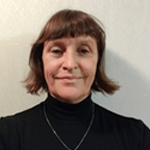
Presentation
Prioritising health to optimise performance in competitive sport. A female perspective
With a growing level of “noise” about female health in sport, practically, what should be the focus. It is easy to be distracted and “deafened” so let’s focus on doing the simple things savagely well in the first instance. And what might those simple things be?
Associate Professor Anthony Bedford
Anthony has worked with both elite sporting clubs and academia for over 20 years. He is an Associate Professor in Sport Performance Analysis, holding the highest qualification in this specialised field. He is an internationally recognised expert in sports analytics having worked in Sports, Horseracing and Wagering, Australian Rules Football, Elite Netball (NZ and Australia), International Badminton and has been involved in two Olympic and three Commonwealth Games campaigns. He is currently one of the analysts for the Silver Ferns and is Chair of MathSport Australasia.
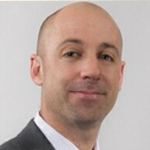
Dr Hayden Croft
Hayden is the Head of College – Health, at Otago Polytechnic and he also teaches in their Performance Analysis postgraduate programme. Hayden’s expertise lies in a variety of areas all focused on advancing coaching through the use of innovative technologies and performance analysis. This has included work with the Silver Ferns Netball, All Blacks, Highlanders, Otago Rugby, World Rugby and Southern Steel Netball. A winner of the Technical Support (2020) and Innovation in Sport (2015) categories at the Otago Sports Awards, Hayden is currently one of the Performance Analyst’s for the Silver Ferns Netball team and was part of the team that won the 2019 Netball World Cup. Subsequently they went on to win NZ Halberg Awards Team and Supreme awards. He has a Master in Physical Education (Biomechanics) and a Bachelor in Physical Education (Sports Science Prescription), both from the University of Otago. His PhD (Performance Analysis) completed at AUT, focused on guiding coaches through large data sets. Much of what was learnt during this research has been applied to the way the Silver Ferns utilise performance analysis currently.
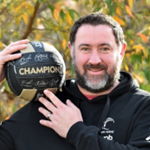
Presentation by Anthony Bedford and Hayden Croft
Analysis of analysis
In this presentation, we cover advances in the performance analysis video and numerical spaces, and how AI, analytical, and reductionist approaches have impacted workflows through our analysis of analysis. This presentation is split into the analysis of video, and analysis of analytics. With analysis of video, we cover how it is viewed, how it is reviewed and how it is used in the Silver Ferns workflow for game review, opposition analysis and game previews. We look at the utility of video at both club and country and look at the variety of uptake within the system, with the highlighted variances in types of learners and approaches. In analysis of analytics, we cover the migration phases through campaigns, entertaining how low-level detailed approaches are aligned with campaign plans. We cover the process of then moving analysis to a higher level of understanding, and how the change in tactical analysis becomes athlete driven as we enter pinnacle events. The depth and breadth of analysis is also covered.
Information innovation and guardrails in sport (John Sullivan, Matt Blair, Eske Dost, Jamie Stanley and Hayden Croft)
The current information ecosystem, where technology and social media play integral roles in shaping human interactions, and AI’s promise is misunderstood. The principles of scientific enquiry and empirical evidence serve as safeguards against disinformation and misinformation. Sport personnel must navigate this digital landscape mindfully, leveraging technology to enhance communication and learning while mitigating its potential negative impacts on athlete health, relationships, and performance.
Facilitator: Glenn Kearney
Glenn serves as the Research Manager at High Performance Sport New Zealand (HPSNZ), building on 25 years of experience supporting elite athletes and teams. He's had the privilege of working with talented individuals and organizations, including the All Blacks, UK Athletics, British Tennis and Andy Murray. More recently he was trusted to support New Zealand's Olympic athletes directly at the Tokyo Olympics and with ongoing performance nutrition services.
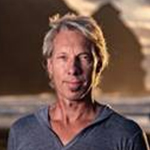
Analysis of analysis: Out of the lab, onto the field! (Hayden Croft, Steve Barrett and Anthony Bedford)
In this panel we discuss advances in the performance analysis video and numerical spaces, and how AI, analytical, and reductionist approaches have impacted workflows through our analysis of analysis. This discussion is split into the analysis of video, and analysis of analytics. With analysis of video, we cover how it is viewed, how it is reviewed and how it is used in the Silver Ferns workflow for game review, opposition analysis and game previews. We discuss the utility of video at both club and country and look at the variety of uptake within the system, with the highlighted variances in types of learners and approaches. In analysis of analytics, we cover the migration phases through campaigns, entertaining how low-level detailed approaches are aligned with campaign plans. We cover the process of then moving analysis to a higher level of understanding, and how the change in tactical analysis becomes athlete driven as we enter pinnacle events.
We then discuss the newly FIFA match-play approved PlayerMaker system- a foot-mounted IMU device worn by many players across the Elite Premier Leagues and federations worldwide. Unlike back-mounted wearables, it enables further-reaching insights into performance and medical disciplines due to the position on the boot generating data on the lower limbs. It is cost-efficient alternative for individual and team data collection and in simplifying analysis, thus contributing to making tracking technologies available across more levels of football. It has adaptations for basketball, netball, hockey and other sports. We discuss the enhancement of knowledge with the system incorporating gait analysis, technical, tactical, physical and video automated tagging as a revolution in performance insights.
Facilitator: Associate Professor Kirsten Spencer
Kirsten is an Associate Professor of Sport Coaching and Youth Development, and a member of the Sports Performance Research Institute NZ where she is leader for the Youth Sport Development Research Group. She is an applied researcher, using methods of modern sports analytics that emphasize research designs that plausibly identify causal effects. Much of her research involves fieldwork to gather new primary data. Her research studies measure the physical and psychological variables that impact development and performance in sports settings, using data collected with performance coding systems that she has designed.
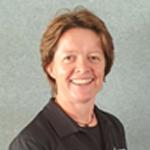
Her research is focused on the use of sport as a vehicle for change in behaviours. She has a broad background in education and coaching, with specific training and expertise in performance analysis, data analytics, thematic analysis and survey research and secondary data analysis on performance development in sport. She is passionate about engaging with coaches and students on the application and integration of performance and data analysis to develop players decision-making and player curiosity. She is one of five Directors of the International Society of Performance Analysis in Sport. Her current research projects with industry include Touch NZ, Wellington Phoenix, Hockey New Zealand, Snow Sport NZ, Netball NZ and Drug Free Sport NZ.
Men without masks
This 60-minute session will highlight my work with Craig White and his business, Men Without Masks. Craig has an extensive background with strength and conditioning (S n C), which has included, amongst other coaching roles, being the Lead S n C for the British Lions and the Welsh Rugby.
In April I joined The King Retreat in Peru. This involved a 5-day workshop in the Sacred Valley after arriving at Cusco and spending a few days commencing my acclimation to altitude. The workshop reflected the online course - ManMap - that we all engaged with before arriving in Peru.
After the workshop we completed the 3-day trek of the Inca Trail to Machu Picchu. Some of the ManMap content included: Creating a New Self, Our Shadow Side, Body Tapping, Warrior Practices, and Stillness. During the session we will try some of the practices I experienced and reflections on the retreat. How could we blend this material with our current work in a high-performance athlete environment?
Workshop presenter: Matt Blair

Matt is the program coordinator for postgraduate studies (pg DipAppSci) and the Academic Leader for the Strength and Conditioning specialty at Otago Polytechnic. Matt has a Master's in Physical Education (Distinction), post graduate diploma in Tourism, and an undergraduate qualification in Nutrition, all from the University of Otago. With this, he has a Graduate Certificate in Tertiary Learning and Teaching from Otago Polytechnic (OP).
Matt has led the development of new undergraduate programs in Personal Training and Physical Conditioning as well as the postgraduate program in Strength and Conditioning. In 2014 Matt was awarded an OP Excellence in Leadership and in 2019 was a part of the postgraduate research team that won an award for excellence. His passion is with physical activity and nutrition, especially conditioning for elite-level athletes. Matt has his own consultancy business where he works as an expert Physical Conditioning Coach, in both community and high-performance environments. He has experience in postgraduate supervision, taking a student-led approach, and encouraging creative thinking.
With the consultancy business – Thyme for Change NZ Ltd, over a 35-year period he has worked as a Personal Trainer (20 years) and a Strength & Conditioning Coach (Current) with a range of professional rugby teams including:
- Otago NPC
- Highlanders
- NZ U20
- Sanix (Japan)
- Tier 2 Senior squads (Fiji, Samoa, and Tonga)
- World Rugby Referees.
Currently Matt is the lead S n C at the Otago Academy of Sport (OAS) which provides a 3-year pathway for a wide range of developing athletes (pre-HPSNZ) throughout the Otago region.
CAPPING analysis: the coach-analyst-player interface
In this workshop, we cover, and discover, what, why, where, when, how and who of optimising your use of video and analysis in a high-performance environment. We look at our fundamental principles in the nexus between coach, player, and analyst for effective and efficient workflows. We cover learnings, failings, and opportunities we have found in these discussions, and enable your priorities in both video and analytical space. We discuss the methods of subtraction – how we learn more from what is removed over what is added, and how CAPPING can improve your high performance analytical relationships
Workshop presenters: Associate Professor Anthony Bedford & Dr Hayden Croft

Anthony has worked with both elite sporting clubs and academia for over 20 years. He is an Associate Professor in Sport Performance Analysis, holding the highest qualification in this specialised field. He is an internationally recognised expert in sports analytics having worked in Sports, Horseracing and Wagering, Australian Rules Football, Elite Netball (NZ and Australia), International Badminton and has been involved in two Olympic and three Commonwealth Games campaigns. He is currently one of the analysts for the Silver Ferns and is Chair of MathSport Australasia.

Hayden is the Head of College – Health, at Otago Polytechnic and he also teaches in their Performance Analysis postgraduate programme. Hayden’s expertise lies in a variety of areas all focused on advancing coaching through the use of innovative technologies and performance analysis. This has included work with the Silver Ferns Netball, All Blacks, Highlanders, Otago Rugby, World Rugby and Southern Steel Netball. A winner of the Technical Support (2020) and Innovation in Sport (2015) categories at the Otago Sports Awards, Hayden is currently one of the Performance Analyst’s for the Silver Ferns Netball team and was part of the team that won the 2019 Netball World Cup. Subsequently they went on to win NZ Halberg Awards Team and Supreme awards. He has a Master in Physical Education (Biomechanics) and a Bachelor in Physical Education (Sports Science Prescription), both from the University of Otago. His PhD (Performance Analysis) completed at AUT, focused on guiding coaches through large data sets. Much of what was learnt during this research has been applied to the way the Silver Ferns utilise performance analysis currently.
Field based submaximal and conditioning insights: Applications to individual specifics
In this workshop we introduce the Playermaker system using a field based HIIT type session with a submax run etc to talk about the innovative mechanical responses and gait analysis, (ground contact time, flight time and stride length) and change of direction metrics.
Workshop presenter: Dr Steve Barrett
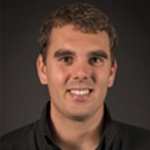
Steve Barrett is currently the VP of Sports Performance (Research & Innovation) at Playermaker, while also serving as both a board member (UKSCA; United Kingdom Strength & Conditioning Association) and board advisor (Hytro & Sweatsearch). With 18+ years of experience working in the sports performance environment, Steve has served as a Head of Sport Science and Performance Analysis, working within the English premier league and championship, from senior level to youth level, while also working for the England Women's national teams. His PhD and MSc focused on the application of wearable technology to explore performance enhancement and injuries risk reducing strategies, primarily in football. His current research interests/ topics include, technical/ physical insights across the player development pathway, talent identification, mechanical response to exercise, submaximal exercise testing and field based conditioning.
Coaching strength and weightlifting: screening, observing and cueing
Working with a variety of populations in the S&C field poses its own set of challenges. As S&C trainers we aim to provide experiences where our clients and athletes move safely, make improvements and have a good time, every time. In this workshop we will cover ways to effectively screen movement, make effective observations and provide effective cues to ensure that safety is achieved, our clients progress consistently, and we are armed with a variety of cueing options to advance our practice as an S&C trainer.
Workshop presenter: Eske Dost
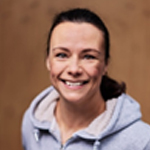
Eske has dedicated 20+ years to the Health and Fitness industry from a NZ representative athlete to coaching boxing, weightlifting and CrossFit. She also operated a successful Sport Nutrition clinic before moving to The Netherlands where she started a gym and a PT studio. Now again residing in the Waikato, Eske is a Level 3 practitioner, tutor at WINTEC in Hamilton, small group and 1 on 1 training coach, S&C trainer, public speaker and lives and breathes HEALTH!
Deceleration: Why is it so important for athletes competing in multi-directional sports?
In this presentation Damian will discuss why deceleration is such a critical quality for athletes competing in multi-directional sports. Damian will unravel the complexities of this skill, illustrate the mechanical and physiological demands, and highlight some of the technical and physical qualities that may underpin better braking and deceleration performance.
Workshop presenter: Dr Damian Harper

Damian is a Lecturer in Coaching and Human Performance at the University of Central Lancashire and Founder of Human Braking Performance (HumanBrakingPerformance.com). He is an accredited sport and exercise scientist (BASES) and strength and conditioning coach (UKSCA), and world renowned for the impact that his research has had on developing and advancing applied sports performance practices. His research interests are focused on innovations and approaches to optimizing human sports performance, which he has a particular interest and expertise in understanding the performance and health implications of high-intensity movement actions performed by athletes in multi-directional sports. Damian’s PhD examined the neuromuscular determinants of horizontal deceleration in team sport athletes. He has published extensively on this topic and consulted with many professional sporting organisations from around the world, including the English Football Association, and clubs from the English Premier League, National Basketball Association and National Football League, amongst many other leading sports organisations and technology companies.
Building physical capacity of the female athlete: What's important? What not to miss?
“Females are not small males so don’t train them like that”. But what are the practical differences and what should a female S&C programme focus on to build physical capacity.
“If they can cope with the physical demands, they can explore the Game.”
Workshop presenter: Sharon Kearney

Sharon (MNZM) has over 30 years of experience as a physiotherapist and a long and comprehensive history of service to High Performance (HP) Physiotherapy, Women in Sport and Netball culminating in being awarded the Member of New Zealand Order of Merit in 2020.
Sharon is currently the Lead Physiotherapist and NetballSmart (Injury Prevention) Consultant for Netball New Zealand (NNZ) having attended six World Cups and two Commonwealth games as the Silver Fern Physiotherapist. Sharon has developed the Female Athlete Health strategy for Netball New Zealand as well as leading and mentoring the HP and community physiotherapy programme. NetballSmart is a world leading, comprehensive and holistic injury prevention programme focusing on wellbeing, injury prevention and performance enhancement of all female Netball participants. The programme has proven to be a very successful at decreasing Netball injuries in New Zealand and improving player wellbeing.
Sharon has a special interest in mitigating ACL injury risk and her Master’s in physiotherapy focused on understanding a best practice model for minimising anterior cruciate ligament injury risk in high performance Netball.
Heat training
This workshop will examine the topic of heat stress and exercise performance. Specific areas that will be covered are fundamentals of acclimation and acclimatisation, heat training modalities, special considerations, and practical applications.
Workshop presenter: Dr Jamie Stanley

Jamie Stanley is a Senior Sports Physiologist at the South Australian Sports Institute (SASI) with secondments to the Australian Cycling Team (ACT) and Swimming Australia High Performance Unit (SAHPU). His role as Lead Physiologist for ACT involves leading the direction of cycling physiology across the Australian high performance sporting network and working as physiologist and coach with the National Paracycling Team. At the SAHPU Jamie is the Performance Solutions Manager for Training Insight which involves leading, planning and managing programs and projects related to acquisition and understanding of swimming performance and delivering platforms for high performance campaigns across Australia. Dr Stanley specialises in performance and recovery optimisation working with current world record holding, Olympic, Paralympic, Commonwealth, and World champion able- and para-athletes. He was the 2020 Exercise and Sport Science Australia Accredited Sport Scientist of the year. The translation, integration, and implementation of research to the applied practical setting has been fundamental to Jamie’s success in his positions within the Australian high-performance sport system. This is evidenced by the consistent and repeated delivery of world leading performances achieved by a diverse range of athletes he has worked with, mindset shifts in coaches, development of support staff through mentoring, and the ability to identify opportunities and collaborate broadly to develop “next practice” and national guidelines in key areas such as heat training and heart rate variability. Jamie is currently the co-principal investigator for the Australian Institute of Sport (AIS) Funded Little Red Riding Hood Group focused on enhancing athlete characterisation to unlock individualised training and promote interdisciplinary engagement, and a member of two other AIS Funded Research groups focused on understanding heat acclimation, and muscle typology. Jamie also holds an Adjunct Research Fellowship at the University of South Australia and is a course instructor for HIITScience.com.
Plyometrics: Working back from the sport, profiling athletes and practical training interventions
Practical sessions will include information on how plyometric interventions can then be periodised for athletes into training (including both eccentric and concentric accentuated plyometric methods) and paired with sound jump training progressions and practical jump load monitoring will also be provided.
Workshop presenter: Dr Joseph Coyne

Joseph Coyne, is currently the Director of High Performance and Sports Development at Lindisfarne Anglican Grammar, strength and conditioning coach for Bond University Swimming and Elite Sports Program and is on the curriculum development team at University of Southern Queensland. Joseph has over 15 years’ experience working with elite professional and Olympic athletes, across a number of different sports. Previous roles include Performance Director for UFC Performance Institute Shanghai, Physical Preparation Coach for Chinese Athletics Association’s jump and sprint section and Performance Manager for the Chinese Olympic Committee. Joseph has also published a number of research outputs on training load and international Olympic athlete performance, which was the subject of his PhD.
Utilising resistance and assistance to enhance linear speed and change of direction performance in field and court sport athletes
Athletes who possess superior explosive athletic capabilities, like sprinting and changing directions, are likely to make game-deciding plays. This can involve beating their opponent to a ball, closing space quickly on an offender, evading a defender, or being able to rapidly transition from one style of play to the next. One of the best ways to enhance these types of explosive movements is through the use of resisted and assisted towing. Each form of loading elicits a unique neuromuscular and technical response, ultimately leading to enhanced performance. In this workshop, we will explore different strategies to provide resistance and assistance for your athletes during linear sprinting and change of direction tasks. Additionally, we will discuss how you can individualise the type of loading based on your athletes' needs.
Workshop presenter: Dr Aaron Uthoff

Aaron specialises as a speed, agility, and quickness coach and is a Senior Lecturer at the Sports Research Institute of New Zealand and Auckland University of Technology where he lectures on principles and applications of strength and conditioning. He blends science, coaching, and education to bridge the gap between empirical and anecdotal evidence to maximise speed and agility in court, field, and track athletes.
Strength and conditioning in action
Download presentations
Keynote Presentations
- Surfing the complexity: maintaining relevance over a career - Jamie Stanley
- Plyometrics: Working back from the sport, profiling athletes and practical training interventions - Joseph Coyne
- Deceleration: Why is it so important for athletes competing in multi-directional sports? - Damian Harper
- Prioritising health to optimise performance in competitive sport. A female perspective - Sharon Kearney

